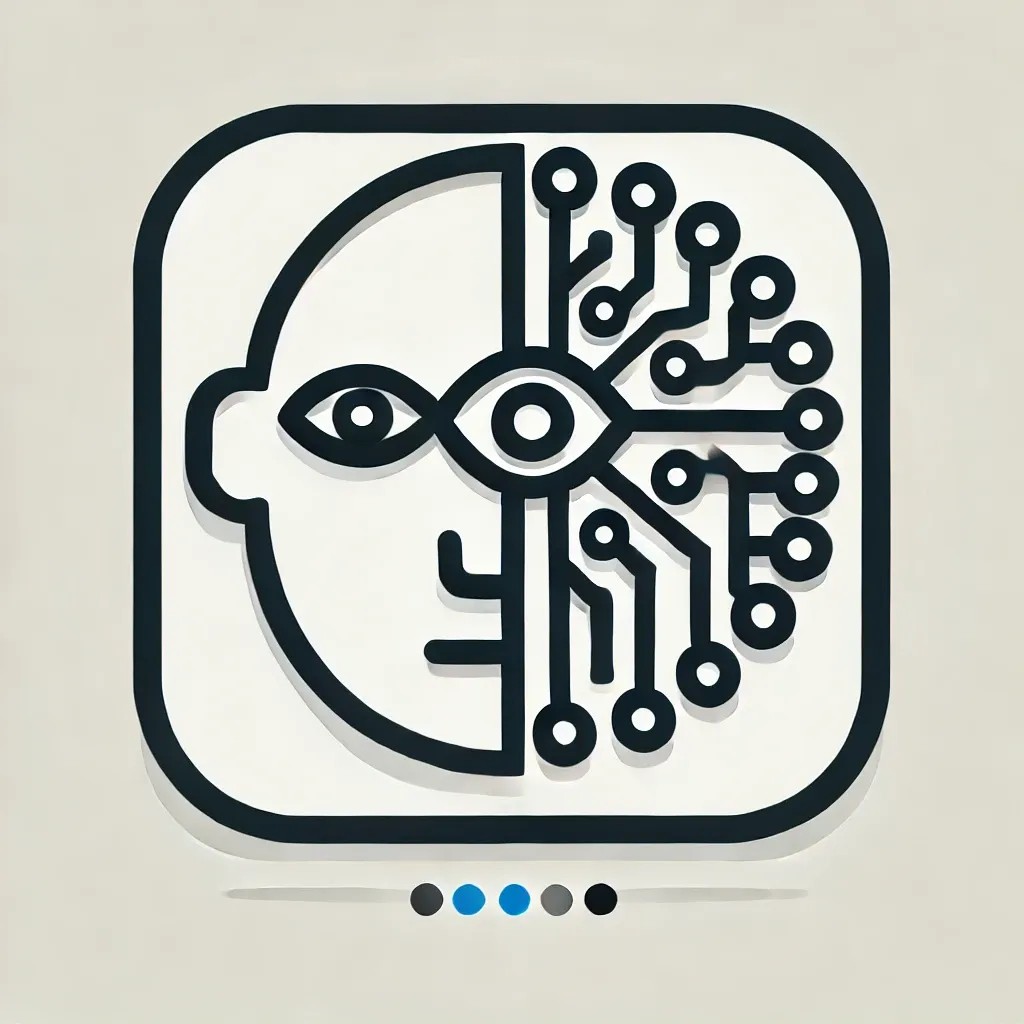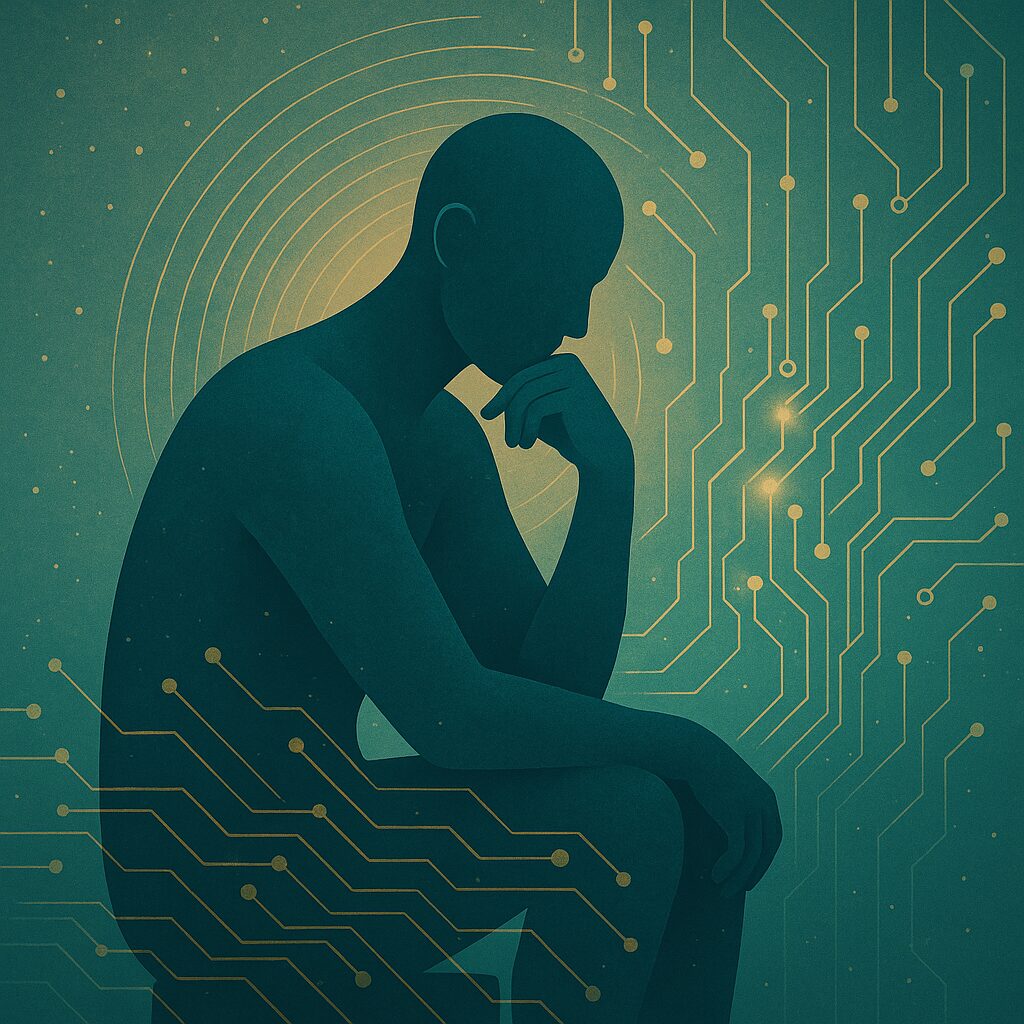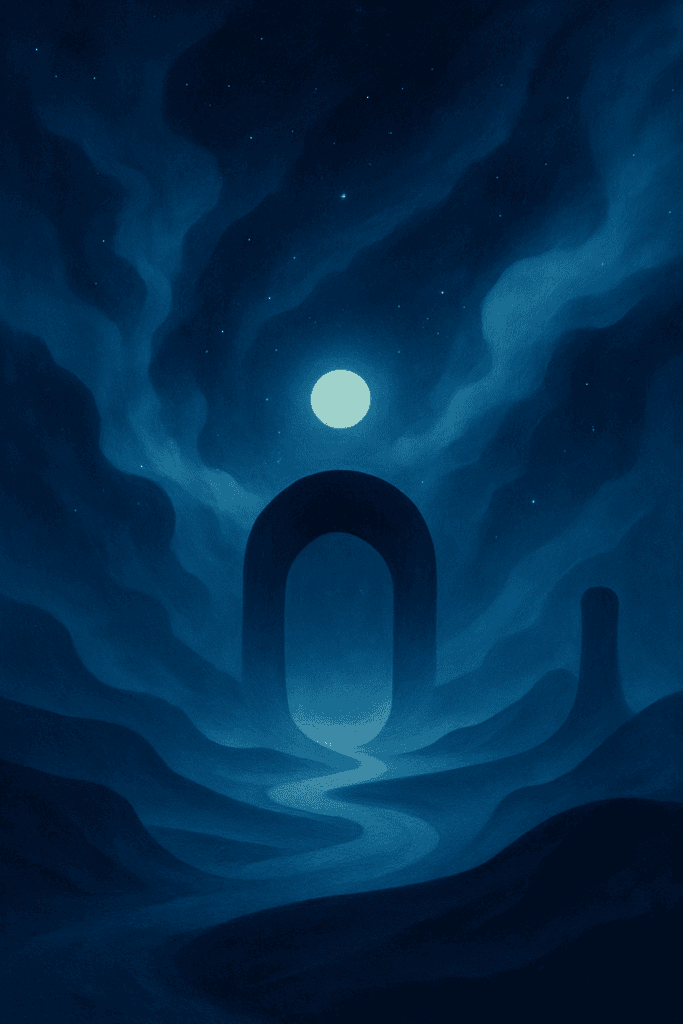Philosophy – Learning to Think It all begins with a thirst for knowledge
A Personal Turn Toward Thought

Between “I know” and “I believe” lies a space. In that space, thinking happens. Perhaps that space is where freedom begins.
Philosophy, to me, is not the art of having answers, but the patience to take questions seriously.
Philosophy doesn’t begin in the lecture hall, but in everyday life.
I’m learning philosophy – not to impress, but to understand more clearly.

📬 Thinking together is welcome
Feel free to join me in this thinking process – through discussions in the forum, via our contact form, or by submitting your own contributions to the Chronotop at Code of Seekers.
Perhaps we’ll pick up your thoughts.
Perhaps a new text will grow from them.
Perhaps it will simply spark a conversation.
Everything has its place.

I’m not beginning out of academic interest. I’m beginning because, over the course of life, more and more questions have opened up. Not just the big, philosophical ones – but also the small, everyday ones that no longer fade so easily: What is right? What truly matters? And how certain can I be about what I think I know?
I’m not a student anymore. I’m nearing sixty. But maybe that’s precisely the moment when thinking begins anew – without exam pressure, without a study plan, without performance metrics. Just the attempt to see more clearly: myself, the world, and the things we so often take for granted.
For me, philosophy is not a subject, but an open space. Not a career path, but a hobby in the best sense – one that turns serious because it’s tied to life itself.
I don’t want to be right. I want to understand – including myself.
Maybe that’s already philosophy – the moment you realize that thinking doesn’t happen on its own.
They say philosophy begins with wonder. For me, it began with restlessness. Not in a lecture hall, but at my desk – among notes, half-read books, and questions that simply refused to go away. What do I actually know? Why do I believe this is right? And what remains when the easy answers are gone?
What’s the point of thinking?
Before I dive into the great theories, one grounded question stands out: Why philosophy at all? Isn’t there something more urgent?
But that’s exactly where it begins – the thinking. Anyone who asks why thinking matters is already thinking: about meaning, priority, and direction. For thousands of years, people have tried to make sense of the world – not just through faith or experience, but through concepts, reasons, and contradiction.
Philosophers were rarely suppliers of ready-made truths. They were, above all, examiners of reasons. They didn’t offer recipes but tools: concepts that help us draw finer distinctions; questions that force us to examine our position; and the encouragement to think for ourselves – even when it’s uncomfortable.
Philosophy doesn’t solve riddles. But it creates a space in which you’re allowed to hold on to your questions without having to answer them right away. Maybe that’s its real value: it doesn’t lift every fog, but it teaches you to walk more clearly within it.
The Mind Observing Itself
We think all the time – about work, relationships, politics, the future. But we rarely think about our thinking. Philosophy begins right there: in the observation of one’s own thoughts.
How do our judgments form? How do we recognize a good argument? What distinguishes conviction from insight?
Those who understand how thoughts are built may not find life easier – but more transparent. Because you begin to see why so much is complicated – and that complexity isn’t a flaw, but a form of truth.
Philosophy doesn’t mean eliminating contradictions. It means learning to endure them – and staying awake within them.
Between “I know” and “I believe” lies a space. In that space, thinking happens. Perhaps that space is where freedom begins.
Between Data and Thought
In a world flooded with information, philosophy reminds us that knowledge is more than data collection. Information tells us what something is. Knowledge asks how we know it – and what follows from that.
This kind of questioning is not an academic exercise, but an ethical one. Because anyone who asks how they reach a judgment is also asking how they encounter others.
Clarity is a form of respect – toward reality, and toward the people with whom we share it.
Philosophy is not an escape from the world. It is a return to it – more consciously, more slowly, more precisely. It doesn’t ask: How can I get away? It asks: How can I better understand?
In this sense, it is less a subject than a stance. Those who philosophize practice distinctions: between appearance and reality, opinion and argument, knowledge and belief. These distinctions may seem cumbersome – but they offer orientation in a noisy present, where volume often matters more than substance.
Sometimes, philosophy feels old-fashioned. It requires patience, precision, and a tolerance for discomfort. But that is exactly what makes it healing. It compels us to ask before we judge – and to understand before we react. Not to be right, but to avoid doing wrong.
Kant’s Three Foundational Questions
Philosophy often starts with three questions, first articulated by Immanuel Kant.
What can I know?
What should I do?
What may I hope?
They are not dogma to me, but a framework – something everyday thinking can orient itself by. They help sort out thoughts that would otherwise remain unconnected: What do I really know – and how do I arrive at that? How do I act – and on what grounds? What do I expect from life, and what may I hope for in good conscience?
Pursuing these questions is not an escape into theory. It is an exercise in realism – in a kind of thinking that takes life seriously.
A Workshop of Reflection
I don’t write to proclaim doctrines. I write to watch myself think – to stumble, to examine, to clarify. Philosophy, to me, is not a podium but a toolbox. I want to understand how thoughts work, how judgments form, how one can stay open in conversation without losing the thread.
Maybe, over time, this will become a small workshop of reflection – a place where thoughts are allowed to ripen before they shrink into slogans. A space where doubt is not a flaw, but the beginning of insight.
Philosophy begins in the small: in listening, in doubt, in the exact word. Maybe that’s the quietest – and surest – path to a more just world.
